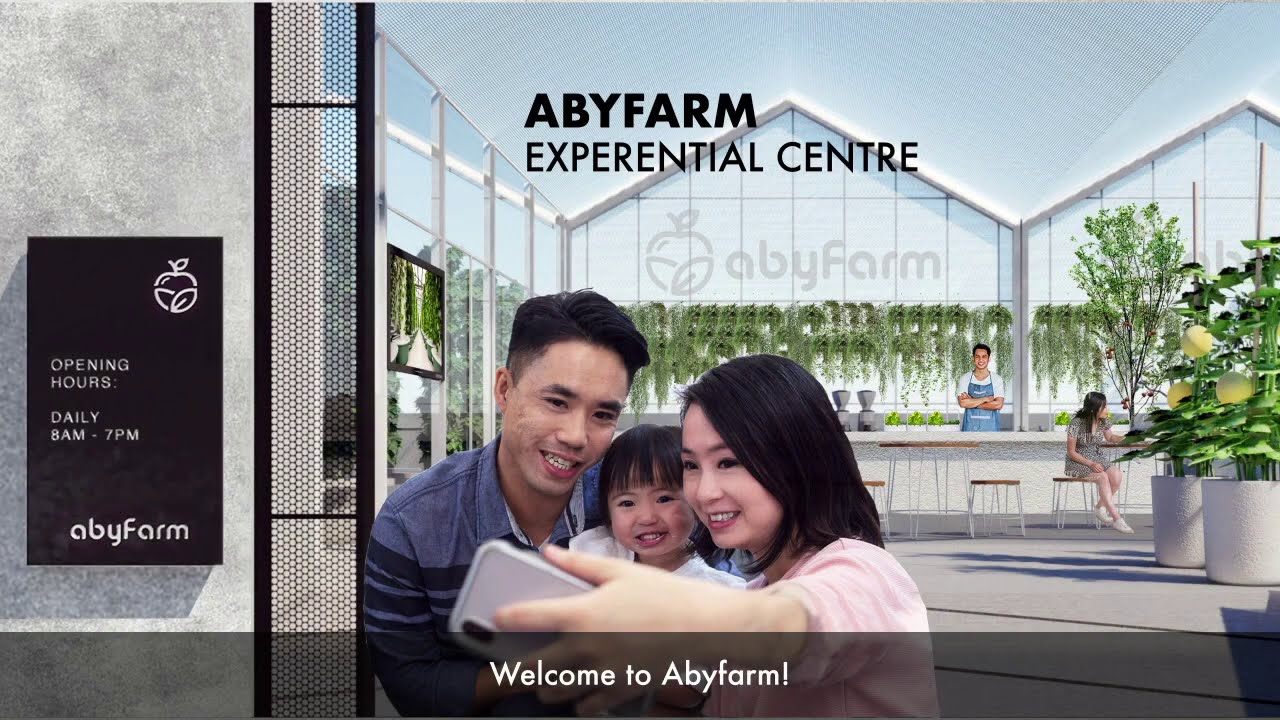AbyFarm belongs to Singapore’s emerging group of urban farmers who are using technologies such as IoT, blockchain and machine learning to help the city state be self-sufficient in growing its own food in spite of shortage of land for cultivation.
The urban farm located on a 3,200sq feet converted rooftop carpark of an HDB housing estate in Ang Mo Kio. It was one of several HDB carparks awarded by the Singapore Food Agency (SFA) this February to six budding urban farms with a term of lease of up to three years. This is all part of the city’s “30 by 30” strategy to locally grow 30% of its own food by 2030.
Unlike traditional farms, AbyFarm adopts soil-less aeroponics and hydroponics farming where crops are grown inside a greenhouse that is fully automated. The farm grows vegetables from kangkong, mushrooms and kai lan as well as potted trees such as figs and Japanese melons
It expects to Aby grow about 240 tons of crops a year.
“The farm is entirely automated, with real-time technology used to control the environment within the greenhouse, and to consistently monitor the crops and identify early the possibility of bad crops, which will ensure its quality,” said Phoebe Xie, director and co-founder, AbyFarm
She added: “AbyFarm is now on the express lane to make smart, sustainable smart farms a reality for Singapore.”
Deploying IoT sensors
Running a smart farm involves the deployment of various technologies such as IoT and machine learning to maximise crop yield and ensure productivity even with limited manpower.
Crops are grown in optimal control environment 24x7 through the use of solar-powered outdoor sensors that track environmental conditions such as temperature, rainfall, humidity, sunlight as well as wind speed and direction. There are also indoor sensors that monitor light, temperature, humidity pH, EC (electrical conductivity of water) and CO2 levels.
All sensor data are fed into the automated control system that triggers various mechanism such as the automated sunshield cover, spraying water mist, cooling fan and wet curtain. Meanwhile, the detected pH and EC levels will automatically trigger the right amount of fertilisers to be mixed with dissolved oxygen and water, and pumped into the farm’s water fertilizer irrigation system.
“To run a self-regulating farm at optimal temperature with optimal water and nutrient supply, and to control the quality and taste of vegetables and fruits, we need IoT sensors,” Xie said.
Meanwhile, a remote management system with real-time notification feature gives farmers the freedom to look after the crops without being physically present. With the help of video cameras and image recognition technology, they can set the optimal range for plant environment, farm inputs and pricing.
Agronomists and other experts also can analyse sensor with machine learning the help improve plant heath and optimise crop yield. Also, if a plant is detected to have a disease, it will trigger a notification to the farmer to physically check its condition. The incident and the subsequent action is fed into the system, allowing other farmers with similar crop issues to find a solution without consulting an expert.
Looking for ease of IoT deployment
Urban farms such as AbyFarm faces challenges in sourcing and identifying appropriate applications, sensors, and technologies. This often results in the use of multiple IoT devices from different vendors, with hefty investments made on multiple platforms.
To save itself from deployment headaches, AbyFarm turned to SPTel to provide its IoT-as-a-platform to monitor and manage various sensors and applications, regardless of their gateway deployment requirements.
She pointed out that as a “one-stop solution”, the SPTel platform manages the end-to-end IoT deployment.
“Farmers can focus on their business of providing quality crops instead of having to worry about managing multiple vendors,” she said.
Furthermore, the platform allows for urban farms to easily scale their IoT deployment as need. They can connect additional IoT sensors with ease as they expand, while retaining centralised control of all devices and applications on the platform. Furthermore, through SPTel’s extensive network of secure hubs across the island, urban farms can leverage a ready IoT platform with island-wide reach for fast deployment across multiple sites.
Xie said: “SPTel’s IoT-as-a-service solution for sensor data collection and analysis allows us to track multiple sensors simultaneously. Through this deployment, we are able to become a sustainable self-regulating urban farm with IoT, automation and crop blockchain ledger that enables farm-to-table traceability for improved food safety and security.”




